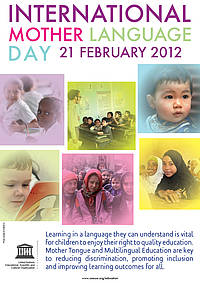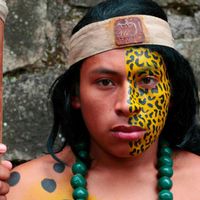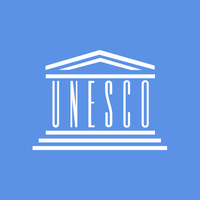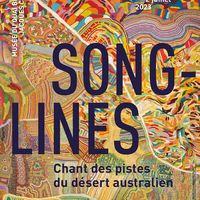Celebrating International Mother Language Day

This year the theme of the International Mother Language day is “Mother tongue instruction andinclusive education”. UNESCO highlights the importance of mother tongue as part of the right to education and encourages its member states to promote instruction and education in the mother tongue.
A world without words? - Celebrating International Mother Language Day
Have you ever heard of kalkoti? An endangered language identified in 2011 by the UNESCO Atlas of the World’s Languages in Danger, it is spoken by only around 4000 people in a village on the north-western border of Pakistan. It is estimated that nearly half of the approximately 6,000 languages spoken in the world could die out by the end of the century, with 96 percent of these languages spoken by a mere 4 percent of the world’s population. "Languages are who we are. By protecting them, we protect ourselves", - said UNESCO Director General Irina Bokova in her message on the occasion of the International Day.
Linguistic and cultural diversity are of strategic importance for people around the world in strengthening the unity and cohesion of societies. To recognize the importance of linguistic diversity, the UNESCO General Conference proclaimed International Mother Language Day (IMLD) in November 1999. The International day has since been observed every year throughout the world on 21 February to promote linguistic and cultural diversity and multilingual education. It aims to help develop better awareness of linguistic and cultural traditions based on understanding, tolerance and dialogue.
UNESCO is working every day to protect linguistic and cultural diversity and to promote equality, development and social inclusion. For example, in the Republic of Korea, following the inclusion of the jeju in the critically endangered group of UNESCO Interactive Atlas of the World’s Languages in Danger, in 2010, several projects are helping inhabitants of the Jeju island preserve the vitality and long-term survival of the jeju language.
Read more about the initiative
Similar content
posted on
21 Mar 2023
posted on
04 Feb 2019
posted on
21 May 2023





